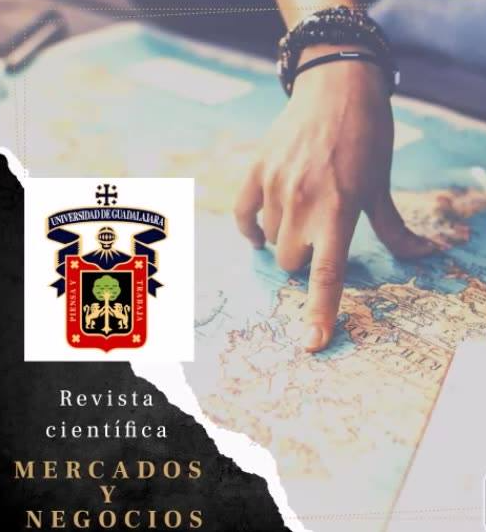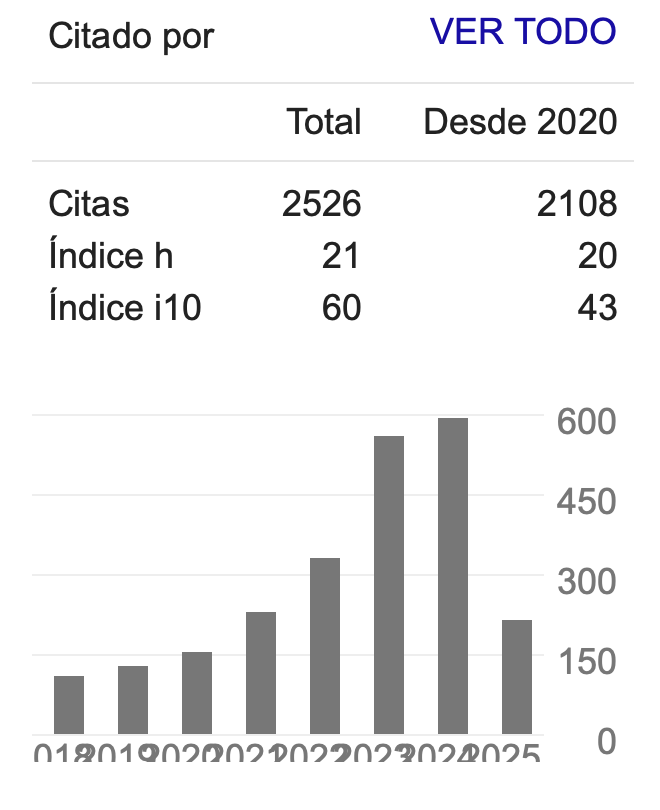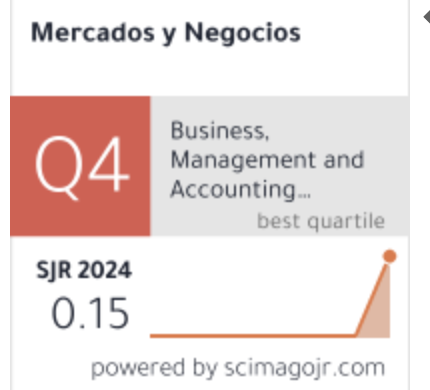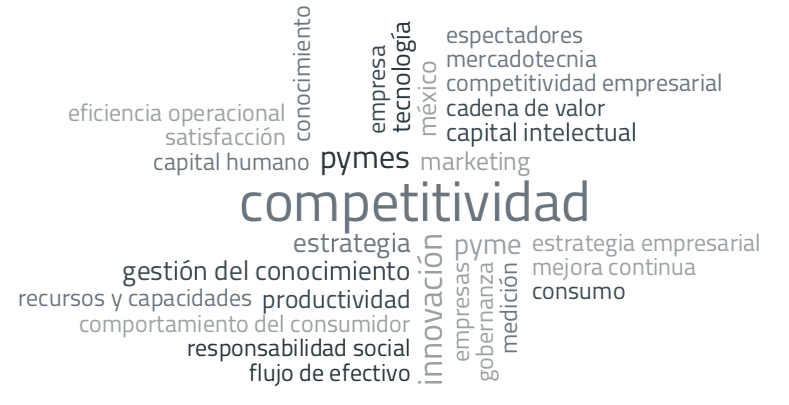Massive Transformative Purpose (MTP) as moderator in the relationship between Culture of Experimentation and Autonomy
DOI:
https://doi.org/10.32870/myn.vi53.7741Palabras clave:
Massive transformation purpose, exponential organizations, culture of experimentation, autonomyResumen
The present research seeks to measure the relationship between the culture of experimentation and autonomy and the relationship between both variables when moderated by the organization's massive transformative purpose (MTP). This quantitative and exploratory research was conducted through a questionnaire for decision-makers in 43 medium and large IT companies in Jalisco. The results reveal a significant positive relationship between the culture of experimentation and autonomy, corroborating the first hypothesis of this research. However, according to the analyses to calculate the degree of moderation of the massive transformation purpose variable (moderator variable) to adjust the relationship between the culture of experimentation and autonomy, the results showed that there are no significant relationships, which rejects the second hypothesis of this research.Citas
Abdulqader, Z., Abdulqader, D. M., Ahmed, O. M., Ismael, H. R., Ahmed, S. H., & Haji, L. (2024). A Responsible AI Development for Sustainable Enterprises: A Review of Integrating Ethical AI with IoT and Enterprise Systems. Journal of Information Technology and Informatics, 3(2).
Abousaber, I., & Abdalla, H. F. (2023). Review of using technologies of artificial intelligence in companies. International Journal of Communication Networks and Information Security, 15(1), 101-108.
Addy, W. A., Ajayi-Nifise, A. O., Bello, B. G., Tula, S. T., Odeyemi, O., & Falaiye, T. (2024). Entrepreneurial leadership in high-tech industries: A review of key traits and success strategies. GSC Advanced Research and Reviews, 18(2), 286-296. https://doi.org/10.30574/gscarr.2024.18.2.0071
Agustian, K., Pohan, A., Zen, A., Wiwin, W. and Malik, A.J., (2023). Human Resource Management Strategies in Achieving Competitive Advantage in Business Administration. Journal of Contemporary Administration and Management (ADMAN), 1(2), pp.108-117. https://doi.org/10.61100/adman.v1i2.53
Ajayi, F. A., & Udeh, C. A. (2024). Agile work cultures in IT: A Conceptual analysis of hr's role in fostering innovation supply chain. International Journal of Management & Entrepreneurship Research, 6(4), 1138-1156. https://doi.org/10.51594/ijmer.v6i4.1004
Anderson, D. R., Sweeney, D. J., & Williams, T. A. (2012). Estadística para negocios y economía. Cengage Learning.
Arregle, J. L., Dattée, B., Hitt, M. A., & Bergh, D. (2023). Organizational Autonomy: A review and agenda for future research. Journal of Management, 49(1), 85-124. https://doi.org/10.1177/014920632211232
Berman, S. & Marshall, A. (2014). Reinventing the rules of engagement: three strategies for winning the information technology race. Strategy & Leadership, 42 (4), 22-32. https://doi.org/hn9b
Blank, S. (2009). Customer Development Manifesto: The Path of Warriors and Winners (part 5). Steve Blank. Link : https://steveblank.com/tag/customer-development/
Boeske, J. (2023). Leadership towards sustainability: a review of sustainable, sustainability, and environmental leadership. Sustainability, 15(16), 12626. https://doi.org/10.3390/su151612626
Brown, T. (2008). Design Thinking. Harvard Business Review, 86 (9), 62-72.
Brown, T., & Wyatt, J. (2010). Design thinking for social innovation. Development Outreach, 12(1), 29-43.
Browning, T. R., & Ramasesh, R. V. (2015). Reducing unwelcome surprises in project management. MIT Sloan Management Review, 56(3), 53-62.
Cheang, J. (2005). Ley de Moore, Nanotecnología y Nanociencias: Síntesis y Modificación de Nanopartículas mediante la Implantación de Iones. Revista Digital Universitaria, 6(7), 1-10.
Chen, P., & Yang, X. (2023). Revisit employer-based travel demand management: A longitudinal analysis. Transport Policy, 131, 22-31.
Christensen, C., & Raynor, M. (2003). The innovator’s solution: Creating and sustaining successful growth. Harvard Business School Press.
Christensen, C. M., Raynor, M., & McDonald, R. (2015). 17. Disruptive Innovation. Harvard Business Review, 93(12), 44-53.
Church, N. J. (2024). Maintaining Your Marketing Competitiveness Through Marketing Innovations. Mercados y Negocios, (51), 3–30. https://doi.org/10.32870/myn.vi51.7713
Diamandis, P. H., & Kotler, S. (2015). Bold: How to go big, create wealth and impact the world. Simon and Schuster.
Dieffenbacher, S. (2024). Massive Transformative Purpose (MTP) - Finding your Business Purpose. Digital Leadership. Link: https://digitalleadership.com/blog/massive-transformative-purpose/
Drucker, P. (1969). The Age of Discontinuity: Guidelines To Our Changing Society. Harper & Row.
Fairchild, A. J., & MacKinnon, D. P. (2009). A general model for testing mediation and moderation effects. Prevention Science, 10(2), 87–99. https://doi.org/10.1007/s11121-008-0109-6
Groves, K.S. & Feyerherm, A.E. (2022). Developing a leadership potential model for the new era of work and organizations. Leadership & Organization Development Journal, 43(6), 978-998. https://doi.org/10.1108/LODJ-06-2021-0258
Gupta, R., Kumar, V., Kaushik, A. K., Gupta, D. D., & Sindhwani, R. (2023). Investigating the impact of online brand communities on online customer engagement and brand loyalty. Journal of Global Marketing, 36(4), 319-338.
Hagel III, J., Brown, J. S., & Davison, L. (2010). The Power of Pull: How Small Moves, Smartly Made, Can Set Big Things in Motion. Basic Books.
Hagel III, J., Brown, J. S., & Kulasooriya, D. (2019). Scaling edges: A pragmatic pathway to transformation. Deloitte Center for the Edge.
Hair, J.F., Anderson, R.E., Tatham, R.L. & Black, W.C. (1999). Análisis Multivariante. Pearson Prentice Hall.
Haider, S. A., & Anees, S. T. (2024). How Knowledge Management Capabilities Enhance Textile Firms’ Innovative Performance. In Industry and Innovation: Textile Industry (pp. 147-164). Cham: Springer Nature Switzerland. https://doi.org/10.1007/978-3-031-57804-5_11
Hellebrand, HM. (2017). An Exponential World: Nature, Patterns, and How to Leverage Them. In: Ellermann, H., Kreutter, P., Messner, W. (eds) The Palgrave Handbook of Managing Continuous Business Transformation. Palgrave Macmillan, London. https://doi.org/10.1057/978-1-137-60228-2_4
Hussain, F. (2024). The Impact of Technology on Modern Business Management. Journal for Business Research Review, 2(1), 72-84.
INEGI (2018). Directorio Estadístico Nacional de Unidades Económicas. INEGI.
Ishak, S., Che Omar, A.R. & Abd Manaf, A. (2021). Entrepreneurial leadership in the micro and small enterprises (MSES) research context: a literature review. International Journal of Academic Research in Business and Social Sciences, 11(5), 397-404. http://doi.org/10.6007/IJARBSS/v11-i5/9815
Ismail, S. (2018). Massive Transformative Purpose - The Heartbeat of Every ExO. Medium.
Ismail, S., Malone, M. S., & Van Geest, Y. (2014). Exponential organizations. Why New Organizations Are Ten Times Better, Faster, and Cheaper Than Yours (and What to Do About It). Diversion Books
Johnson, D. H. (1999). The insignificance of statistical significance testing. The journal of wildlife management, 763–772.
Kane, G.C., Palmer, D., Phillips, A.N., Kiron, D. & Buckley, N. (2018). Coming of Age Digitally. MIT Sloan Management Review and Deloitte Insights.
Kane, G.C., Palmer, D., Phillips, A.N., Kiron, D. & Buckley, N. (Junio, 2019). Accelerating Digital Innovation Inside and Out. MIT Sloan Management Review and Deloitte Insights.
Kantar BrandZ (2024). Revealed: Most Valuable Global Brands (2024). Kantar. Link : https://www.kantar.com/inspiration/brands/revealed-the-worlds-most-valuable-brands-of-2024
Kecht, C., Egger, A., Kratsch, W., & Röglinger, M. (2023). Quantifying chatbots’ ability to learn business processes. Information Systems, 113, 102176.
Kenny, D. (2015). Moderation. DavidaKenny. Link : http://davidakenny.net/cm/moderation.htm
Kurzweil, R. (1999). The Age of Spiritual Machines: When Computers Exceed Human Intelligence. Viking Press.
Kurzweil, R. (2001). The Law of Accelerating Returns. Link : http://www.kurzweilai.net/the-law-of-accelerating-returns
Li, Y., Emin, M., Zhou, Q., Zhang, J., & Hu, W. (2023). The relationship between epistemic curiosity and creativity: Research status and educational implications. Future in Educational Research, 1(2), 115-128. https://doi.org/10.1002/fer3.14
Li, D., & Shepherd, M. (2024). Creating the next generation of high-tech startup accelerators in Colorado Springs, Colorado: an interview with Vance Brown, co-founder and executive director of Exponential Impact. Journal of Information Technology Case and Application Research, 1-7.
Li, K., & You, L. (2023). Leased capital and the investment-q relation. Journal of Corporate Finance, 80, 102354.
Marchese, S., Gastaldi, L., & Corso, M. (2022). Demystifying Exponential Organizations: A Bibliometric Review. In 29th Innovation and Product Development Conference (IPDMC) “Innovation in the Era of Climate Change” (pp. 1-17).
Margherita, A., Elia, G., Baets, W. R., & Andersen, T. J. (2020). Corporate “Excelerators”: How Organizations Can Speed Up Crowdventuring for Exponential Innovation. Innovative Entrepreneurship in Action: From High-Tech to Digital Entrepreneurship, 71-91.
Meuser, J. D., & Smallfield, J. (2023). Servant leadership: The missing community component. Business Horizons, 66(2), 251-264.
Moalagh, M., Mikalsen, M., & Farshchian, B. A. (2023). Are Team Autonomy and Flexibility Enough for Agile Transformation? A Review of Transformed Practices in a Public Sector Organization. In Proceedings of the 21st European Conference on Computer-Supported Cooperative Work: The International Venue on Practice-centered Computing on the Design of Cooperation Technologies - Exploratory Papers, Reports of the European Society for Socially Embedded Technologies. https://doi.org/10.48340/ecscw2023_ep08
Mohout, O. & Kiemen, M. (2018). A critical perspective to exponential organizations and its hyper scalability. Preprint Mixel Link: https://mixel.be/files/pdf/Criticaltoexponential_preprint.pdf.
Moro-Visconti, R. (2024). Artificial Intelligence-Driven Digital Scalability and Growth Options. In Artificial Intelligence Valuation: The Impact on Automation, BioTech, ChatBots, FinTech, B2B2C, and Other Industries (pp. 131-204). Cham: Springer Nature Switzerland.
Palao, F. (2022). Purpose Launchpad Guide V 2.0. Purpose Alliance.
Peng, J. C., & Chen, S. W. (2023). Learning climate and innovative creative performance: Exploring the multi-level mediating mechanism of team psychological capital and work engagement. Current Psychology, 42(15), 13114-13132.
Ismail, S., Palao, F., & Lapierre, M. (2019). Exponential transformation: Evolve your organization (and change the world) with a 10-week ExO sprint. John Wiley & Sons.
Ries, E. (2011). The Lean Startup: How today’s entrepreneurs use continuous innovation to create radically successful businesses. Crown Publishing Group.
Ries, E. (2012). El método Lean Startup. Grupo Planeta.
Riesthuis, P., & Woods, J. (2024). “That’s just like, your opinion, man”: the illusory truth effect on opinions. Psychological Research, 88(1), 284-306. https://doi.org/10.1007/s00426-023-01845-5
Sánchez, J., Cabanelas, P., Lampón, J. F., & González, T. E. (2019). The impact on competitiveness of customer value creation through relationship capabilities and marketing innovation. Journal of business & industrial marketing, 34(3), 618-627. https://doi.org/10.1108/JBIM-03-2017-0081
Santos, D. (2023). Conceptualizing the democratization of innovation through transitions theory: A case study of biohacking in community science labs. Environmental Innovation and Societal Transitions, 49, 100783. https://doi.org/10.1016/j.eist.2023.100783
Seelos, C., & Mair, J. (2012). Innovation is not the Holy Grail. Stanford Social Innovation Review. 10(4), 44-49.
Smith, H. A., & McKeen, J. D. (2003). Instilling a knowledge-sharing culture. Queen’s Centre for Knowledge-Based Enterprises, 20(1), 1-17.
Thomke, S. (2020). Building a culture of experimentation. Harvard Business Review, 98(2), 40-47
Thomke, S. & Manzi, J. (2014). The discipline of business experimentation. Harvard Business Review, 92(12), 17.
Yu, H., & Hutson, A. D. (2024). Inferential procedures based on the weighted Pearson correlation coefficient test statistic. Journal of Applied Statistics, 51(3), 481-496. https://doi.org/10.1080/02664763.2022.2137477
Zhang, X., & Chun, D. (2023). Business Model Innovation of Exponential Organizations: The Case of Xiaomi. Sustainability, 15(7), 5738.
Descargas
Publicado
Cómo citar
Número
Sección
Licencia
Derechos de autor 2024 Antonio de Jesús Vizcaíno, Alfredo Aguilar Ruiz

Esta obra está bajo una licencia internacional Creative Commons Atribución-NoComercial 4.0.
Mercados y Negocios por Departamento Mercadotecnia y Negocios Internacionales. Universidad de Guadalajara se distribuye bajo una Licencia Creative Commons Atribución-NoComercial 4.0 Internacional.
Basada en una obra en http://revistascientificas.udg.mx/index.php/MYN/.
Los autores conservan los derechos de autor.








